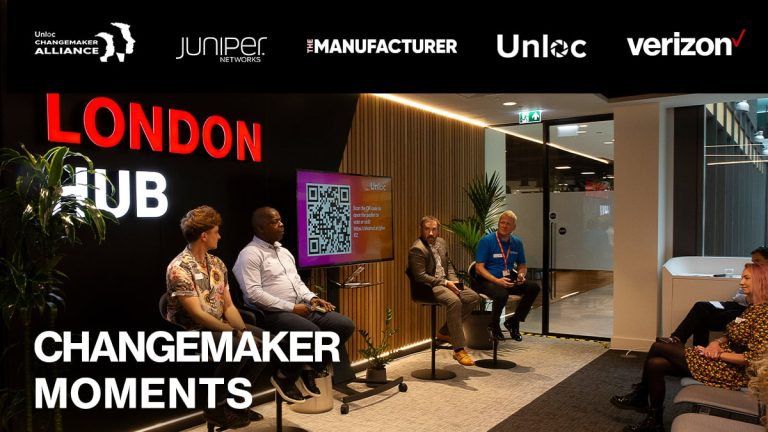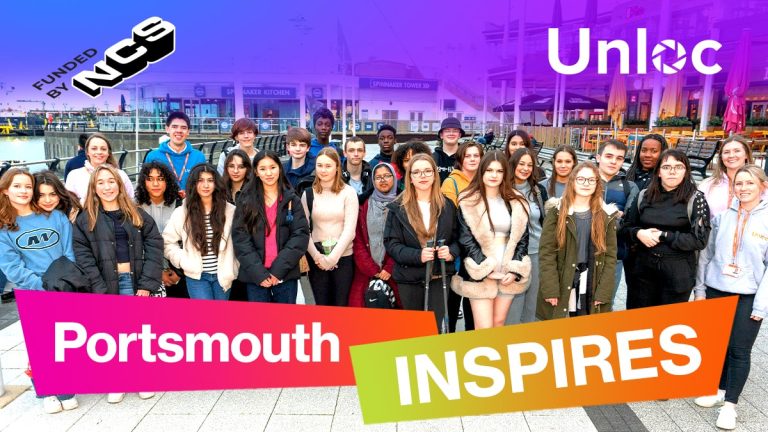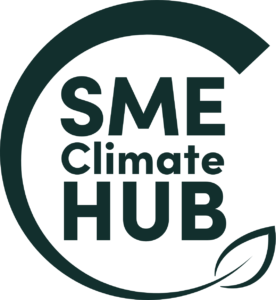
.
Five young entrepreneurs have been named as finalists in the latest Verizon / Unloc Young Entrepreneurs Challenge to encourage and attract the dynamic new business leaders of tomorrow. The challenge, now in its sixth year, tasks young people between the ages of 16 and 25 to devise a tech-led business idea that enriches and benefits the planet.
This year’s top challenge has uncovered solutions, including a new bladeless hydro generator, a hybrid sunlight system that utilises advanced optics with a sun-tracking mechanism, and GenerativeAI technology to improve eye disease screening programs.
.
“Over the past six years the Young Entrepreneurs Challenge has uncovered amazing young talent from across Europe, with increased engagement and bolder business concepts year on year,” said Sanjiv Gossain, General Manager andHead of EMEAfor VerizonBusiness.
“With the current challenges in the technology sector and reduced startup funding across the EMEAregion, dragged by inflation, higher interest rates and geopolitical events, programs like the Young Entrepreneurs Challenge are even more important to ensure we continue to support and nurture budding entrepreneurs.”
.
This year saw 100 competitive entries from a broad range of countries across Europe including the UK, France, Italy, Spain, Hungary, Poland, Turkey, Ukraine, Bulgaria, Romania, Austria, Belgium, Netherlands, Germany, Ireland, Finland and Greece. These entries were narrowed down to five finalists.
.
“As the reputation of the competition grows, we’re seeing thatreflected in the sheer standard of applicants, not only that, we’re delighted to have such an amazing panel of Judges,” said Hayden Taylor, Managing Director of Unloc
“It’s inspiring to see somany new and innovative business concepts in the areas of sustainability, climate change and healthcare, and we’re proud to play a key role in helping scale these ideas.”
.
The five finalists now compete for the grand prize during a live event on March 7th where they will pitch their ideas to a panel of judges that includes former Grand Prize Winner JamieBankhead, as well as guests in business and education. The grand final will be live-streamed on LinkedIn.
The top winner receives a whopping £10,000 Grand Prize, mentorship, a technology support package to help kickstart their business proposal, and a trip to the One Young World 2024 Global Summit in Montréal, which brings together many of the brightest young leaders from over 190 countries and more than 250 organisations.
Each runner-up will receive £1,000 to fund their start-up business, a personalised development plan that focuses on key priorities, and access to a series of masterclasses overt he next yeart hat will pair the finalists with various industry experts.
.
Judges forthe Grand Final include:
- Sanjiv Gossain, Group VP & Head of EMEA, Verizon Business
- Ella Robertson-McKay, Managing Director, One Young World
- Piers Linney, Formerinvestor on Dragons’ Den, Co-founder: Implement AI, Adviser & Speaker
- Jamie Bankhead Previous YEC Winner & CEO of Konglomerate Games
- John Williams, Marketing Director & CMO – EMEA & APAC, Verizon Business
Your 2024 Young Entrepreneurs Challenge finalists are:
.

.
Kolatat Phaiboonnukulkij (20) United Kingdom
Phytavaren Technology, a Prop tech startup in London, specialises in building thermal dynamicsR&D with passive design and developing eco-friendly building materials and other low-energy construction materials by integrating architectural solution design to address thermal regulation, carbon sequestration and structural integrity in construction. The Interlocking Semi-Calcite PassiveBrick (ISCPB), Phytavaren Technology’s flagship product, has been recognised by prestigious and global awards in innovation, sustainability, and real estate of a product that is making a significant impact on the industry transition. ISCPBis a sustainable construction material with eco-design integrated with thermal dynamics to use less electricity to regulate building temperature.
The ISCPB re-engineers common waste from the ocean as a sustainable construction material that can make the building temperature independent from the outside temperature. ISCPB helps consume less electricity by regulating the building temperature through its insulator properties. This enables the company to save more energy and makes the construction process faster, safer, and more eco-friendly. With thermal properties benefits, Phytavaren Technology is lowering the workload of the HVAC system and energy consumption in buildings through passive and eco-design to make the building energy efficiency more resilient.
.

.
Devi Pathak (19) United Kingdom
Lung cancer accounts for over a fifth of cancer fatalities annually. With approximately 38,000new cases diagnosed annually, it is the leading cause of cancer-related deaths. This is due to ineffective screening processes and delayed symptom recognition associated with lung cancer detection. Devi’s solution, Pulmo Guard Pro Scan, is a novel breathalyser intended for both routine GP exams and high-risk individuals (e.g. smokers, exposure to environmental pollutants) to determine lung cancer susceptibility.
It analyses volatile organic chemicals and biomarkers in exhaled air, such asmiRNAs, isoprene orNNK, which are linked to lung cancer risk. Early detection is aided by the device’s rapid and non-invasive results. Due to Pulmo Guard Pro Scan’s user-friendly design, this facilitates widespread, seamless integration into standard GP procedures.Healthcare providers and patients can take proactive preventative steps that align with the evolving nature of personalised medicine. The Pulmo Guard device stands out by offering a distinctive solution that tackles the challenge of detecting lung cancer at an early stage and reducing NHS costs associated with lung cancer, which currently costs the UK economy £2.4 bn each year.
The relatively low production cost, its mobile nature and its ability to be re-used makes Pulmo Guard a device which is accessible to healthcare workers around the world, including doctors, and can be easily introduced into routine checkups. This will promote good health and well-being and reduce inequality as individuals from diverse socioeconomic backgrounds would have access to preventative care.
.

.
Theodor Blomberg (23) United Kingdom
Introducing “The Swirl.” – one of the first truly bladeless hydro generators that harness the power of the
vortex effect, setting it apart fromconventional generators. Crafted fromrecycled plastics using 3D
printing technology, Swirl. operates withoutrotating blades. The innovative bladeless design of Swirl.
eliminates perpendicular obstacles for passing biomass, and its rotating systemfollows the water stream creating a safe passage for fish and other biomasses through the middle section, all while generating sustainable power.
Designed for easy assembly by a single person, Swirl requires no heavy machinery, featuring components compressed into flat packages for convenient transport. Swirl. is an ideal choice for individuals seeking a greener future through their own sustainable energy source -requiring only a small stream of water. The Swirl. is sustainable as it aims to support the commercialisation of clean energy sources for eco-conscious individuals or those in need of a green backup source. Furthermore, the product is made of recycled materials, aiming to support the current green shift and make green energy more accessible worldwide.
.

.
Ethan Waisberg (23) United Kingdom
Eye disease screening programs worldwide are not performing well enough, which is causing millions around the world to go blind. From his research work with NASA astronauts, Ethan found a way to use Generative AI to allow the eyes of astronauts to be better monitored while in spaceflight, where limited imaging equipment exists.
Ethan is bringing this same technology to Earth withAngioGenius, an app where anyone can take a photo of their eye at home to help detect and monitor eye disease progression.
.

.
Mariia Alipatova (24) Ukraine
Solar Optic is a hybrid sunlight system that utilises advanced optics and a sun-tracking mechanism to
provide natural illumination indoors. The system concentrates sunlight on the surface of the lens and the light beam is guided through a polymer optic cable. Similar to normal lamps, Solar Optic diffuses sunlight from cables inside the building.
Solar Optic does not convert heat into electricity like solar panels do, which is how the solution avoids losses of energy and achieves high-efficiency illumination inside the building. The Solar Optic system works together with artificial light, compensating for the missing light when there is not enough sun outside. High electricity prices and carbon taxes are forcing organisations to think about the implementation of sustainable solutions. Solar Optic technology has a potential application in various markets such as schools, warehouses and supermarkets.
.
For more information on The Young Entrepreneurs Challenge click here!








